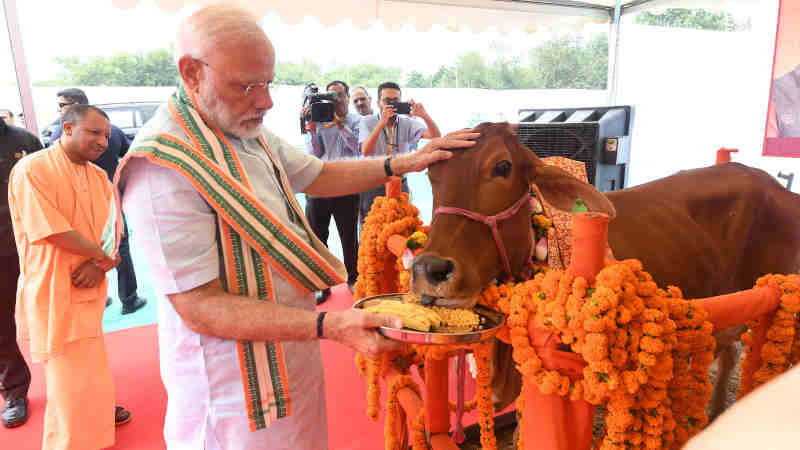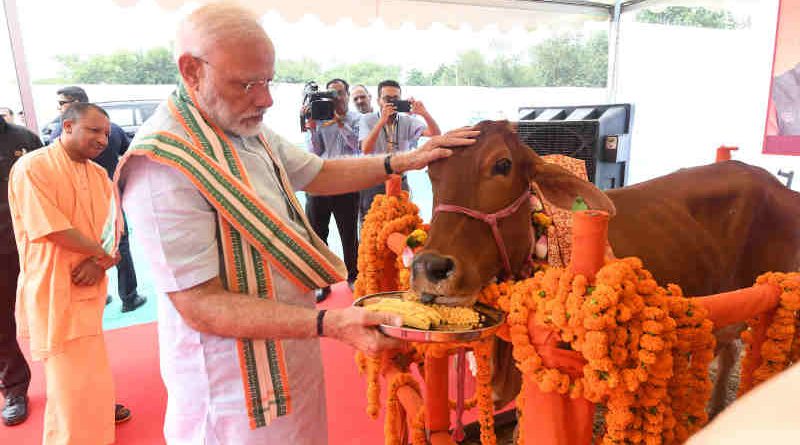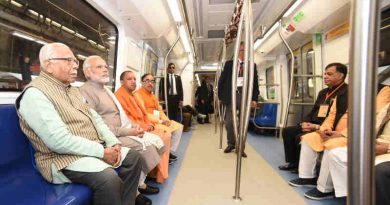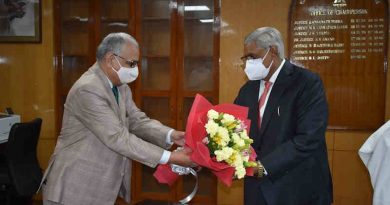Supreme Court of Modi Govt Refuses to Stay Anti-Muslim Citizenship Law

Supreme Court of Modi Govt Refuses to Stay Anti-Muslim Citizenship Law
The judges – particularly of the Supreme Court – deliver weekend academic lectures on constitution, democracy, and justice. But they do not practice in courts what they preach in their academic discourse.
By Rakesh Raman
The Supreme Court of India has refused to stay the implementation of the Citizenship Amendment Act (CAA). In a hearing held today (March 19), the court asked the Indian government to file its reply by April 8 to over 200 petitions challenging the citizenship law that was notified a week ago.
But the court did not stop the government of prime minister (PM) Narendra Modi from implementing the law which is said to be anti-Muslim and thus against the spirit of the Indian Constitution.
The new citizenship law allows persecuted non-Muslim religious minorities – such as Hindus, Christians, Buddhists, Jains, Parsis, and Sikhs who came before 2015 as refugees from Pakistan, Bangladesh, and Afghanistan – to seek citizenship in India.
Since Muslims are excluded from this citizenship benefit, the CAA law violates the principles of Indian Constitution which promotes secularism or prohibits any discrimination on the basis of religion.
It is largely believed that the Supreme Court has not intervened in the CAA case effectively because it wants to give an undue advantage to the Modi regime to woo the majority of Hindu voters in the Lok Sabha election which is scheduled to take place from April 19.
Earlier, in 2020 also, the Supreme Court had refused to grant a stay on the CAA, which had triggered nationwide protests that demanded the repeal of CAA and the related laws about National Population Register (NPR) and National Register of Citizens (NRC).
HOW SUPREME COURT WORKS
When the Supreme Court of India takes some ostentatious decisions to save the democracy or protect citizens’ rights in some insignificant cases, you can safely presume that the court will allow violation of the Constitution in significant cases to help the Modi regime.
In February 2024, for example, a bench led by Chief Justice of India (CJI) DY Chandrachud condemned the conduct of a poll official who had tampered with the ballot papers to help Modi’s Bharatiya Janata Party (BJP) win the Chandigarh mayor elections.
Ostensibly, Chandrachud also called the incident a “mockery of democracy” and “murder of democracy”. Since the mayor elections in a small city like Chandigarh are not quite important for the Modi regime, the Supreme Court took the decision cautiously against Modi’s BJP. And with his avoidable comments on democracy, the Chief Justice gave the impression that he cares for constitutional principles.
Similarly, in the recent electoral bonds case the Supreme Court created a false impression that it is pronouncing a judgment against Modi’s BJP which is the largest beneficiary of the illicit funds through electoral bonds.
[ Also Read: Justice Khanwilkar with Dubious Record to Head Anti-Corruption Outfit Lokpal ]
But the Supreme Court is not asking the complicit State Bank of India (SBI) to release the complete data from the beginning of the electoral bonds scheme because that may embarrass the BJP government and some of its corporate partners.
In effect, the Supreme Court decision has no impact on BJP which is allowed to keep thousands of crores of rupees that it received through this illegal route of electoral bonds and nobody in the Modi government or the SBI has been convicted.
कोर्ट ने फटकार लगाई
However, some naive journalists and gullible Indians – without understanding the case and without knowing the Supreme Court’s real intentions – often praise the top court judges, saying that the court censured the accused close to the Modi regime. Or they use the meaningless and oft-repeated Hindi statement: “कोर्ट ने फटकार लगाई” to praise the court judges. But the court’s job is not to deliver loose rhetoric. Rather, the judges are supposed to transparently apply law to decide a case.
Most Indians do not understand the fact that with its theatrical judgments in small cases which do not impact the Modi regime, the court surreptitiously makes room for itself to absolve the Modi government and its officials in serious cases of crime.
[ Also Read: Supreme Court Failure Causes More Corruption in Modi Regime ]
For example, the top court succumbed and dishonestly protected the Modi regime in cases such as PM-CARES Fund case, Rafale corruption case, Article 370 in Kashmir case, Sri Lanka energy project case involving Adani Group, Modi-Adani collusion case, Sahara-Birla payoff case, Predator Drone deal, electronic voting machine (EVM) fraud case, and a number of other cases in which Modi’s party colleagues are allegedly involved.
If you evaluate the judgments of the Supreme Court through an Artificial Intelligence (AI)-based expert system, you will find that almost all the judgments, dismissal of petitions, or delays in decisions are either wrong or biased in favour of the Modi regime. The situation is worse in high courts and lower courts where judges are more corrupt and almost illiterate.
The judges – particularly of the Supreme Court – deliver weekend academic lectures on constitution, democracy, and justice. But they do not practice in courts what they preach in their academic discourse. All that they say is meaningless rhetoric because when they sit in their courts as judges, they leave no stone unturned to crush democracy and violate all norms of the Constitution.
The Supreme Court decision or inaction in the CAA case is yet another example of complicity where the court is providing impunity to the Modi regime.
By Rakesh Raman, who is a national award-winning journalist and social activist. He is the founder of the humanitarian organization RMN Foundation which is working in diverse areas to help the disadvantaged and distressed people in the society.






